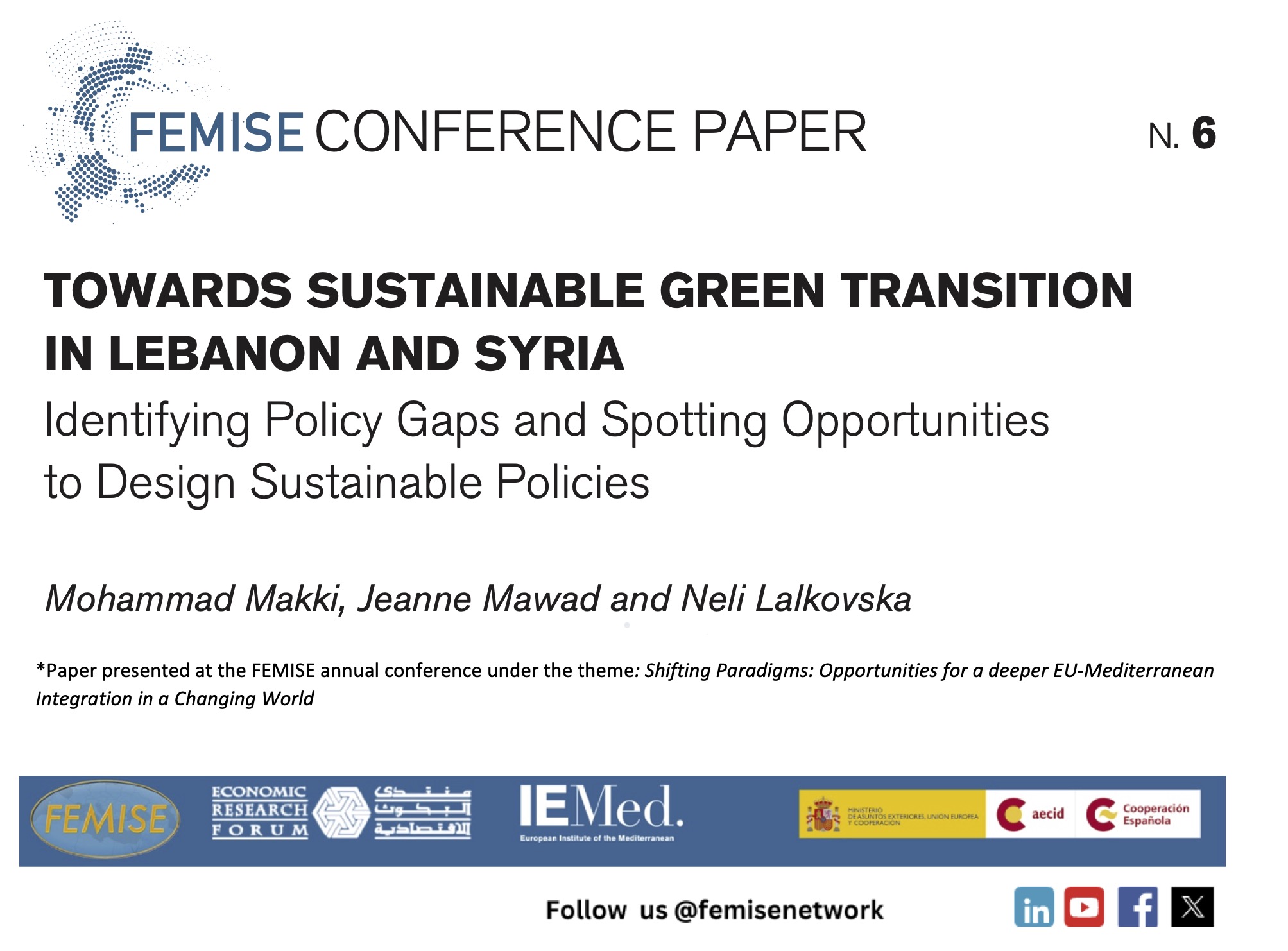
Abstract
This policy paper casts a spotlight on the struggling ecosystems that stymie entrepreneurial efforts within the green transition sector, with a keen focus on Southern Mediterranean nations like Lebanon and Syria. It unearths critical policy gaps and highlights the multifaceted challenges impeding progress—ranging from inadequate government intervention and outdated regulatory frameworks to insufficient infrastructure, weak support systems due to internal conflicts caused by the political conflict and war in Syria, and a lack of sustainable financing and public awareness. Recognizing entrepreneurship as a pivotal force for driving change, the study emphasizes the need for long-term investment and expert guidance to fuel transformation. Based on information gathered through key informant interviews and Focus groups with experts in the field of green energy, the policy paper advocates for strategic engagement with donors, international NGOs, academic institutions, innovation hubs, and financial entities, proposing a blend of sustainable funding mechanisms and collaborative efforts. It also underscores the crucial role of universities and innovation centers in fostering awareness, developing relevant curricula, and shaping regulatory frameworks to bolster entrepreneurial ecosystems.




 The policy brief has been produced with the financial assistance of the European Union within the context of the FEMISE program. The contents of this document are the sole responsibility of the authors and can under no circumstances be regarded as reflecting the position of the European Union
The policy brief has been produced with the financial assistance of the European Union within the context of the FEMISE program. The contents of this document are the sole responsibility of the authors and can under no circumstances be regarded as reflecting the position of the European Union